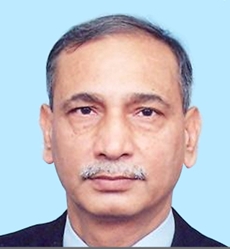Pak investigator says 26/11 attack was `Made in Pakistan’
04 Aug 2015
Tariq Khosa, the investigator who headed Pakistan's probe into the 26/11 Mumbai terror attack, has said there was plenty of evidence linking the Lashkar-e-Taiba (LeT) to the carnage that was ''planned and launched'' from Pakistani soil.
 In an article in the Dawn newspaper, Khosa, the former head of Pakistan's Federal Investigation Agency (FIA), virtually backs every claim India has made about Pakistan's role in the attack.
In an article in the Dawn newspaper, Khosa, the former head of Pakistan's Federal Investigation Agency (FIA), virtually backs every claim India has made about Pakistan's role in the attack.
Khosa has listed seven facts about the investigation there that he says "are pertinent'', that the attack was "planned and launched" from Pakistani soil.
FIA investigators have traced the training camp near Thatta in Sindh province where the LeT terrorists were trained. The casings of explosive devices used in Mumbai were recovered from the camp and duly matched, Khosa wrote.
The fishing trawler in which the terrorists sailed to Mumbai and hijacked an Indian trawler for launching an attack by sea was identified and secured by investigators.
The trawler was brought back to a Pakistani harbour, painted and concealed. But it was recovered by investigators and connected to the accused, Khosa wrote in the article.
The engine of the dinghy abandoned by the terrorists near Mumbai harbour ''contained a patent number through which the investigators traced its import from Japan to Lahore and then to a Karachi sports shop from where a LeT-linked militant purchased it along with the dinghy'', he added.
FIA, he wrote, followed up the money trail and arrested the accused who bought the engine.
The ''ops room'' in Karachi that was used to direct the attack was identified and secured by investigators. Communications through voice over internet protocol (VoIP) were also unearthed, Khosa said.
The alleged commander - Zakiur Rehman Lakhvi - and his deputies were identified and arrested and a couple of foreign-based financiers and facilitators were arrested and brought to face trial, he wrote.
But the trial of the seven men charged with carrying out the attacks had ''lingered on for far too long'' and Pakistan must ensure the ''perpetrators and masterminds...are brought to justice,'' Khosa wrote.
He said ''dilatory tactics by the defendants, frequent change of trial judges, and assassination of the case prosecutor as well as retracting from original testimony by some key witnesses'' had been serious setbacks for Pakistani prosecutors.
The Islamabad high court ruled that the trial should be completed within two months but the deadline set by it has already passed.
The anti-terrorism court conducting the trial even refused to obtain voice samples of the accused without their consent. This was followed in the sessions court as well, because, as the court pointed out, there was no provision in Pakistan's Evidence Act or Anti-Terrorism Act for collecting voice samples.
The new Fair Trial Act of 2013 caters for admissibility of technical evidence like voice samples and Khosa said ''its application with retrospective effect is a moot point''.
Khosla also said the Mumbai case was ''quite unique'' as it involved one incident with two jurisdictions and two trials. While India managed to nab Kasab and obtained his confession to close the trial, ''proving conspiracy in a different jurisdiction is more complex and requires a far superior quality of evidence,'' he said.
Khosa suggested that legal experts from both countries ''sit together rather than sulk and point fingers''.
At the same time, he said, Pakistan must also bring to book other identified facilitators and operatives who live as fugitives as the trial ''will not be over with the disposal of those under arrest or on bail.''
''Other missing links need to be uncovered after the absconders' arrest. This case will not be over soon,'' he wrote.
Khosa, who was made head of the FIA probe weeks after the assault that killed 166 people, said Pakistan has to deal with the fallout of the attacks and this will require ''facing the truth and admitting mistakes''.
The slow progress of the trial and the release of Lakhvi on bail have emerged as key irritants in bilateral ties between India and Pakistan.
Prime Minister Narendra Modi and his Pakistani counterpart Nawaz Sharif who met in the Russian city of Ufa last month had agreed to discuss ways to expedite the trial of the Pakistani suspects. But bilateral relations have not improved, only deteriorated further.



















